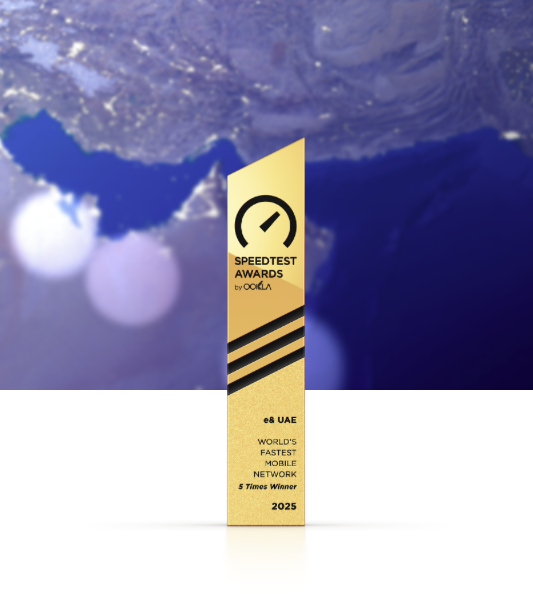TL;DR: Europa Universalis V is Paradox’s magnum opus — deep, dense, and dazzlingly complex. A bit buggy, a bit overwhelming, but a glorious tribute to the art of grand strategy. Bring coffee. And patience.
Europa Universalis V
There are nights when the world outside fades away — the streetlights hum, the coffee goes cold, and somewhere deep in the digital guts of my computer, a map of Europe flickers with tiny banners and trembling armies. That’s when I know I’ve fallen down the Paradox rabbit hole again. For some people, that means another lost weekend to Crusader Kings’ intergenerational drama or Victoria’s population spreadsheets. For me, this month, it meant booting up Europa Universalis V and realizing that yes, Paradox has done it again: they’ve made a game so dense, so alive, and so gloriously complicated that I’m both in awe and mildly terrified.
Let’s get this out of the way early: Europa Universalis V isn’t just a sequel. It’s a reckoning. It’s the grand strategy genre looking in the mirror after decades of empire-building and quietly saying, “Okay, what if we actually tried to simulate everything?”
Because that’s what this game is — an attempt to model the messy, unpredictable, human sprawl of 500 years of global history. And somehow, impossibly, it works.
Paradox Tinto could’ve played it safe. They could’ve just polished up Europa Universalis IV, slapped on a prettier map, and sold it with a bow. But EU5 isn’t interested in being safe. This game feels like the studio looked at Victoria 3, Crusader Kings III, and Imperator: Rome, siphoned their best ideas, and forged them into something more ambitious — a single, seamless simulation of the early modern world that’s as intimidating as it is beautiful.

You don’t play a ruler in EU5; you play the country itself. That’s not just marketing poetry — it’s the core philosophical shift of the game. You’re not an omnipotent god-king anymore; you’re an ecosystem. A writhing, reactive machine of people, classes, faiths, and economies that each tug at the others in chaotic ways.
When I started as Norway, I thought I’d do what I always do: cozy up to Denmark, maybe colonize a bit of Canada, and see if I could survive without getting swallowed by Sweden. But a few decades in, I realized my “plan” was a polite suggestion at best. My peasants were restless. My clergy wanted autonomy. My merchants were furious that I hadn’t secured Baltic trade routes. Suddenly, it wasn’t a strategy game anymore — it was a juggling act, a nation-soul simulator where every choice had cascading consequences.
And that’s the magic of Europa Universalis V: it refuses to simplify. Everything is connected. Trade isn’t just abstract money flowing between nodes; it’s an organic web shaped by your people’s productivity, their literacy, their hunger, their desires. Religion isn’t just a stat modifier; it’s a living force that changes how your citizens see the world — and how they see you.

Paradox calls this their “most ambitious simulation ever,” and for once, the PR bluster feels earned. The population system — borrowed and evolved from Victoria 3 — changes everything. Every province isn’t just a color on a map anymore; it’s filled with people who have jobs, families, religions, and opinions about the world.
It’s one thing to know your peasants are unhappy because of taxes. It’s another to watch literacy rates climb and realize that education isn’t just boosting production — it’s fueling ideological revolt. Suddenly, every reform is a tightrope: raise taxes too high, and you risk rebellion; lower them, and your army starves. Expand your navy, and your artisans boom, but your farmers can’t find bread. It’s a simulation of cause and effect so intricate that even a butterfly flapping its wings in Cairo might collapse your economy in Copenhagen.
And yet, despite all that depth, the game sings. It’s not cumbersome — it’s hypnotic. There’s an elegance to the chaos, the way small decisions echo centuries later. The feeling of zooming out and seeing your nation as a breathing entity is intoxicating.
When you look at the map — that massive, painterly sprawl of continents and coastlines — you can feel the weight of the world. The new engine renders terrain and lighting with an almost tactile warmth; clouds roll across the North Sea, snow thickens over the Alps, and trade winds sweep through the Caribbean. It’s less of a board game now and more of a living atlas, pulsing with history.
War in EU5 is the best it’s ever been — and by that, I mean it’s terrifying. Gone are the days of casually clicking armies together and hoping your numbers win. Now, the battlefield feels alive. Terrain, weather, logistics, morale — every factor matters, and every oversight can cost you everything.

In one campaign, I tried to invade Scotland during a particularly wet spring. My troops slogged through flooded rivers, their morale breaking as supply lines collapsed. My cavalry, once my pride, became soggy, starving liabilities. When the Scots counterattacked from the Highlands, I watched my entire campaign unravel like a tragic poem.
It wasn’t fun in the traditional sense — it was absorbing. Every battle became a story, a case study in overreach and hubris. The AI, meanwhile, has gotten terrifyingly competent. Enemy generals use terrain and weather against you, retreat when cornered, and regroup in ways that feel eerily human. You can automate wars now, letting AI-controlled generals handle the chaos, but even that carries risk. Sometimes your commander decides “caution” means sitting in the rain for six months doing nothing while your economy implodes.
But when you get it right — when your flanking maneuver works, your cannons roar, and your banner waves over a conquered capital — it’s transcendent. The new battle reports, with detailed breakdowns of casualties, weather, and tactics, make every victory feel earned and every loss feel like a lesson.
Here’s something I never thought I’d write: Europa Universalis V respects your time. Not in the “this is a short game” sense — dear God, no — but in the “this is a game that understands not everyone wants to micromanage grain exports at 3 a.m.” sense.
The new automation systems are genius. You can decide what to control and what to delegate — trade, diplomacy, internal politics, even certain wars. The AI assistants aren’t perfect, but they’re competent enough to handle the tedium, leaving you free to focus on the big picture.
That modular control is what makes EU5 feel so approachable, despite its mind-boggling depth. You can tailor your experience, switching between full control and partial automation at any time. When I’m tired, I let my ministers handle internal trade while I focus on exploration. When I’m fully caffeinated and slightly deranged, I turn everything off and personally adjust grain taxes in every province. The fact that both playstyles coexist harmoniously is a testament to how much Paradox understands its audience now.

And yet, no amount of clever tutorialization can mask the truth: this game is hard. Even with better onboarding and mission trees that gently guide you, the sheer density of systems is overwhelming. Europa Universalis V doesn’t just have a learning curve — it has a learning cliff.
As a veteran of Paradox titles, I came in cocky. Within hours, the game had humbled me. Even basic mechanics like managing estates or balancing population happiness require a depth of understanding that only hundreds of hours can grant.
The tutorial tries. It really does. The mission system does a decent job of contextualizing new mechanics, encouraging experimentation instead of rote button-pressing. But the scale is so enormous that no amount of hand-holding could ever be enough. This isn’t a game you beat — it’s a game you live in.
And that’s both its blessing and its curse. Some people will bounce off immediately, overwhelmed by the menus and mechanics. Others — the ones who, like me, get a thrill from watching spreadsheets breathe — will lose entire weeks of their lives without noticing.
Let’s be real: Paradox games and launch-day stability go together like monarchies and democracy. Europa Universalis Visn’t immune. I’ve had crashes. I’ve had frame hitches. I’ve had the game refuse to scale properly on my ultrawide monitor, leaving half my map looking like a Renaissance painting shoved into a funhouse mirror.
But — and this is the key difference — the foundation feels solid. Imperator: Rome launched as a beautiful disaster; EU5feels like a masterpiece with some smudges. The engine runs smoother than any Paradox title before it, and while performance dips do happen, they’re not the soul-crushing kind.

It’s also worth remembering that this is Paradox: post-launch support is practically part of the business model. By the time the first major patch and inevitable DLCs roll in, I fully expect this game to run like silk.
There’s a poetic irony in how Europa Universalis V feels both brand new and ancient — a culmination of 20 years of Paradox design philosophy. Every lesson learned from their past titles lives here, integrated into a coherent whole.
The dynastic drama of Crusader Kings, the economic ballet of Victoria, the civic experimentation of Imperator, the sandbox freedom of Stellaris — it’s all here, harmonized into something unprecedented.
It’s also the most human Paradox game ever made. Beneath all the data and systems lies an emotional core — a sense of stewardship, of history unfolding through your hands. You’re not just moving armies; you’re shaping people’s lives across centuries. Watching a small fishing town grow into a global trade hub is oddly moving, like watching your SimCity save file become a biography.
That’s what separates EU5 from its peers. It’s not just a game about history — it’s a meditation on it. It asks what power means, what progress costs, and how much control we truly have over the tides of time.
There’s a moment every Paradox player knows: when the sun starts rising, the world outside is silent, and you’re staring at the map wondering where the last eight hours went.
That’s where Europa Universalis V lives. It’s a game that devours time because it demands attention — not just from your mouse hand, but from your mind. It’s an intellectual exercise, a history lesson, a chaos generator, and occasionally a reminder that even the best-laid plans of monarchs and gamers go awry.

And maybe that’s the point. EU5 doesn’t just simulate history — it captures its unpredictability. It reminds us that nations, like players, are fragile, impulsive, and shaped by forces they barely understand.
It’s exhausting. It’s exhilarating. It’s everything I love and fear about Paradox games distilled into one monumental experience.
After dozens of hours (and at least three ruined sleep schedules), I can safely say Europa Universalis V is Paradox at its absolute best — a sprawling, intricate, unapologetically demanding masterpiece that rewards obsession and punishes carelessness.
It’s not for everyone. Newcomers will find the learning curve brutal, and even veterans will need to unlearn old habits. Performance quirks and UI quirks still linger. But beneath it all lies a game of staggering ambition — one that takes the “grand” in grand strategy and raises it to something operatic.
If Europa Universalis IV was about painting the map your color, V is about understanding the paint — how it’s made, who mixes it, and what it costs to use it. It’s less about domination and more about simulation — a living world you inhabit, shape, and sometimes ruin.







